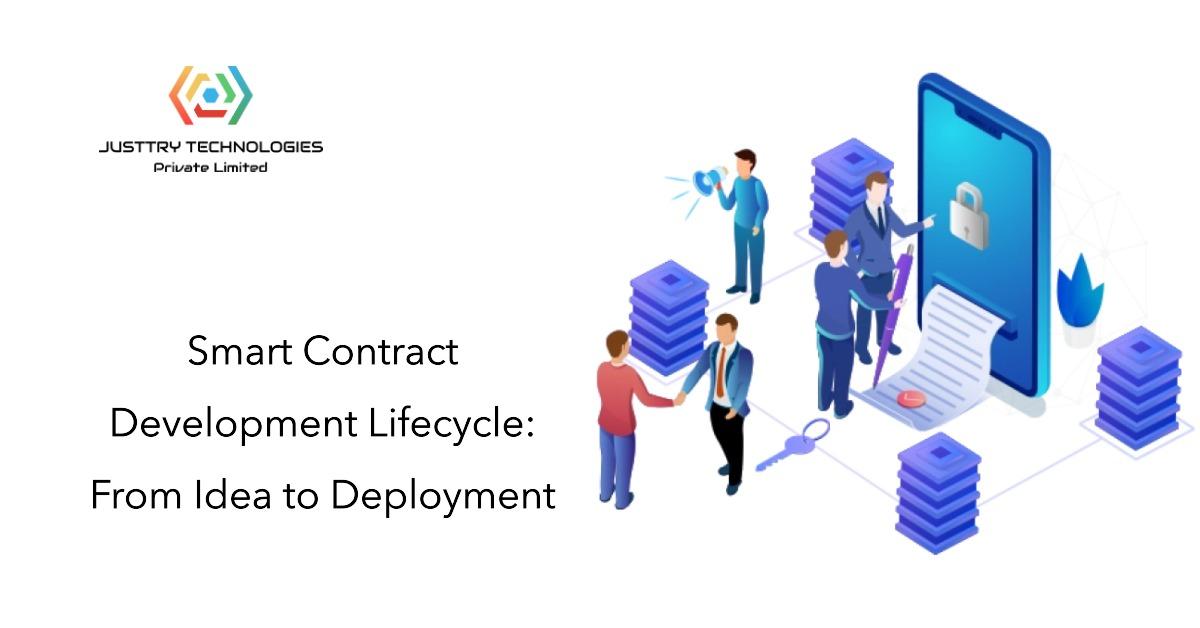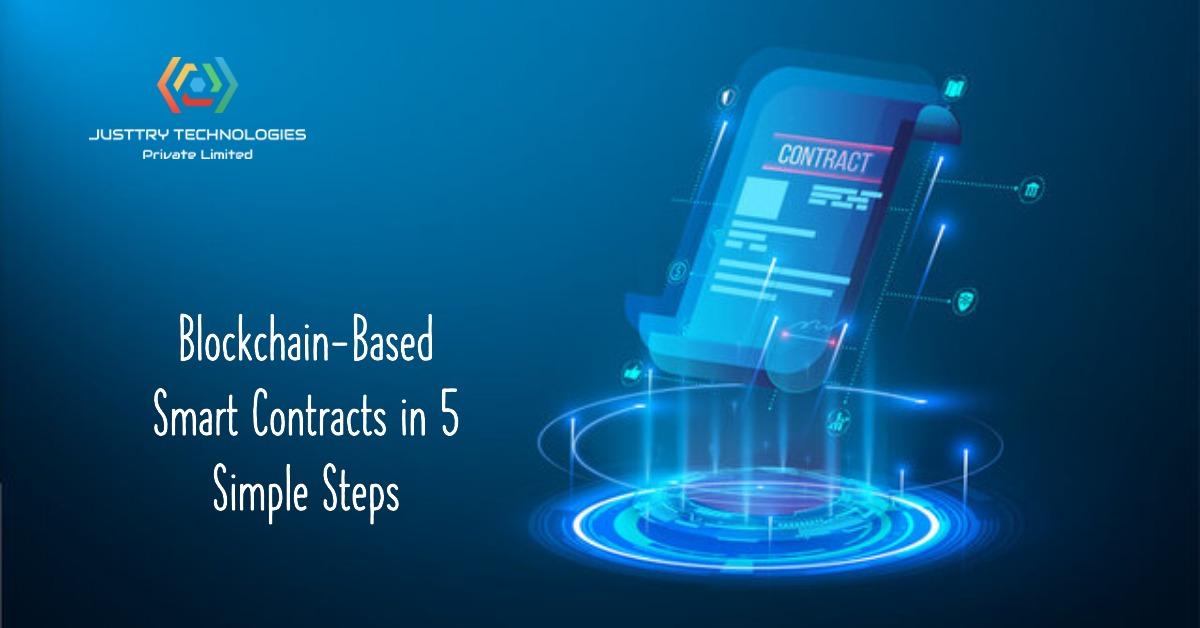Smart Contract Development Lifecycle: From Idea to Deployment
1. Ideation: Define Purpose and Logic
Every smart contract starts with a concept. What real-world interaction needs automation? Whether it's an NFT minting engine, a token vesting schedule, or a DAO voting mechanism, the contract’s logic must serve a tangible business goal.
Identify use case and target users
Define expected actions and events
Evaluate if blockchain-based smart contracts are necessary
2. Platform Selection: Choose Your Blockchain
Different blockchains offer different strengths. Ethereum is battle-tested but costly. BNB Chain offers speed with affordability. Polkadot, Avalanche, and Solana bring scalability and interoperability.
Consider gas fees, speed, and ecosystem maturity
Ensure compatibility with your contract’s goals
Leverage developer tools and libraries available on the platform
3. Architectural Design: Structure the Logic
Proper architecture ensures performance, scalability, and upgradeability.
Modularize code for better maintenance
Plan data storage and function interactions
Integrate external data via oracles when needed
Design decisions made here will impact security and cost efficiency down the line.
4. Development Phase: Write and Optimize Code
Using languages like Solidity, Vyper, or Rust, developers begin writing the smart contract. Clean, optimized, and secure code is essential.
Follow best practices (e.g., reentrancy protection, access control)
Use version control and clean code patterns
Plan for upgradeability with proxy contracts if needed
A professional smart contract development company ensures quality and consistency during this phase.
5. Testing and QA: Prevent Costly Errors
Smart contracts are immutable once deployed. Testing helps eliminate vulnerabilities before they become expensive mistakes.
Unit test each function
Simulate complex scenarios using local testnets
Tools like Truffle, Hardhat, and Ganache are industry standards
Smart contracts that aren't rigorously tested are highly prone to exploits.
6. Security Audits and Compliance
Security is non-negotiable. Exploits have drained millions from poorly written contracts.
Conduct internal and third-party audits
Use automated tools like MythX and Slither
Stay compliant with Web3 regulations and evolving legal frameworks
Trust begins with secure code.
7. Deployment and Monitoring
Deployment involves publishing the smart contract to a public blockchain like Ethereum mainnet. Post-deployment, continuous monitoring ensures reliability.
Automate deployment with scripts
Monitor using tools like Etherscan and Tenderly
Patch vulnerabilities using proxy upgrade patterns if needed
Deployment is just the beginning maintaining the contract is ongoing.
The development lifecycle of smart contracts is a high-stakes journey. Each stage, from ideation to launch, plays a critical role in ensuring security, functionality, and long-term value. Engaging expert smart contract development services like Justtry Technologies can ensure robust and scalable outcomes. Are your smart contracts ready to deliver real-world impact?
Visit: https://justtrytech.com/web3-smart-contract-development-company/,
https://justtrytech.com/smart-contract-development-company/
Contact us: +91 9500139200
Mail address: justtrytechnologies@gmail.com
#smartcontractdevelopmentcompany #smartcontractdevelopmentservices #smartcontracts #blockchainbasedsmartcontracts #web3smartcontracts
1. Ideation: Define Purpose and Logic
Every smart contract starts with a concept. What real-world interaction needs automation? Whether it's an NFT minting engine, a token vesting schedule, or a DAO voting mechanism, the contract’s logic must serve a tangible business goal.
Identify use case and target users
Define expected actions and events
Evaluate if blockchain-based smart contracts are necessary
2. Platform Selection: Choose Your Blockchain
Different blockchains offer different strengths. Ethereum is battle-tested but costly. BNB Chain offers speed with affordability. Polkadot, Avalanche, and Solana bring scalability and interoperability.
Consider gas fees, speed, and ecosystem maturity
Ensure compatibility with your contract’s goals
Leverage developer tools and libraries available on the platform
3. Architectural Design: Structure the Logic
Proper architecture ensures performance, scalability, and upgradeability.
Modularize code for better maintenance
Plan data storage and function interactions
Integrate external data via oracles when needed
Design decisions made here will impact security and cost efficiency down the line.
4. Development Phase: Write and Optimize Code
Using languages like Solidity, Vyper, or Rust, developers begin writing the smart contract. Clean, optimized, and secure code is essential.
Follow best practices (e.g., reentrancy protection, access control)
Use version control and clean code patterns
Plan for upgradeability with proxy contracts if needed
A professional smart contract development company ensures quality and consistency during this phase.
5. Testing and QA: Prevent Costly Errors
Smart contracts are immutable once deployed. Testing helps eliminate vulnerabilities before they become expensive mistakes.
Unit test each function
Simulate complex scenarios using local testnets
Tools like Truffle, Hardhat, and Ganache are industry standards
Smart contracts that aren't rigorously tested are highly prone to exploits.
6. Security Audits and Compliance
Security is non-negotiable. Exploits have drained millions from poorly written contracts.
Conduct internal and third-party audits
Use automated tools like MythX and Slither
Stay compliant with Web3 regulations and evolving legal frameworks
Trust begins with secure code.
7. Deployment and Monitoring
Deployment involves publishing the smart contract to a public blockchain like Ethereum mainnet. Post-deployment, continuous monitoring ensures reliability.
Automate deployment with scripts
Monitor using tools like Etherscan and Tenderly
Patch vulnerabilities using proxy upgrade patterns if needed
Deployment is just the beginning maintaining the contract is ongoing.
The development lifecycle of smart contracts is a high-stakes journey. Each stage, from ideation to launch, plays a critical role in ensuring security, functionality, and long-term value. Engaging expert smart contract development services like Justtry Technologies can ensure robust and scalable outcomes. Are your smart contracts ready to deliver real-world impact?
Visit: https://justtrytech.com/web3-smart-contract-development-company/,
https://justtrytech.com/smart-contract-development-company/
Contact us: +91 9500139200
Mail address: justtrytechnologies@gmail.com
#smartcontractdevelopmentcompany #smartcontractdevelopmentservices #smartcontracts #blockchainbasedsmartcontracts #web3smartcontracts
Smart Contract Development Lifecycle: From Idea to Deployment
1. Ideation: Define Purpose and Logic
Every smart contract starts with a concept. What real-world interaction needs automation? Whether it's an NFT minting engine, a token vesting schedule, or a DAO voting mechanism, the contract’s logic must serve a tangible business goal.
Identify use case and target users
Define expected actions and events
Evaluate if blockchain-based smart contracts are necessary
2. Platform Selection: Choose Your Blockchain
Different blockchains offer different strengths. Ethereum is battle-tested but costly. BNB Chain offers speed with affordability. Polkadot, Avalanche, and Solana bring scalability and interoperability.
Consider gas fees, speed, and ecosystem maturity
Ensure compatibility with your contract’s goals
Leverage developer tools and libraries available on the platform
3. Architectural Design: Structure the Logic
Proper architecture ensures performance, scalability, and upgradeability.
Modularize code for better maintenance
Plan data storage and function interactions
Integrate external data via oracles when needed
Design decisions made here will impact security and cost efficiency down the line.
4. Development Phase: Write and Optimize Code
Using languages like Solidity, Vyper, or Rust, developers begin writing the smart contract. Clean, optimized, and secure code is essential.
Follow best practices (e.g., reentrancy protection, access control)
Use version control and clean code patterns
Plan for upgradeability with proxy contracts if needed
A professional smart contract development company ensures quality and consistency during this phase.
5. Testing and QA: Prevent Costly Errors
Smart contracts are immutable once deployed. Testing helps eliminate vulnerabilities before they become expensive mistakes.
Unit test each function
Simulate complex scenarios using local testnets
Tools like Truffle, Hardhat, and Ganache are industry standards
Smart contracts that aren't rigorously tested are highly prone to exploits.
6. Security Audits and Compliance
Security is non-negotiable. Exploits have drained millions from poorly written contracts.
Conduct internal and third-party audits
Use automated tools like MythX and Slither
Stay compliant with Web3 regulations and evolving legal frameworks
Trust begins with secure code.
7. Deployment and Monitoring
Deployment involves publishing the smart contract to a public blockchain like Ethereum mainnet. Post-deployment, continuous monitoring ensures reliability.
Automate deployment with scripts
Monitor using tools like Etherscan and Tenderly
Patch vulnerabilities using proxy upgrade patterns if needed
Deployment is just the beginning maintaining the contract is ongoing.
The development lifecycle of smart contracts is a high-stakes journey. Each stage, from ideation to launch, plays a critical role in ensuring security, functionality, and long-term value. Engaging expert smart contract development services like Justtry Technologies can ensure robust and scalable outcomes. Are your smart contracts ready to deliver real-world impact?
Visit: https://justtrytech.com/web3-smart-contract-development-company/,
https://justtrytech.com/smart-contract-development-company/
Contact us: +91 9500139200
Mail address: justtrytechnologies@gmail.com
#smartcontractdevelopmentcompany #smartcontractdevelopmentservices #smartcontracts #blockchainbasedsmartcontracts #web3smartcontracts
0 Comentários
0 Compartilhamentos
73 Visualizações
0 Anterior






